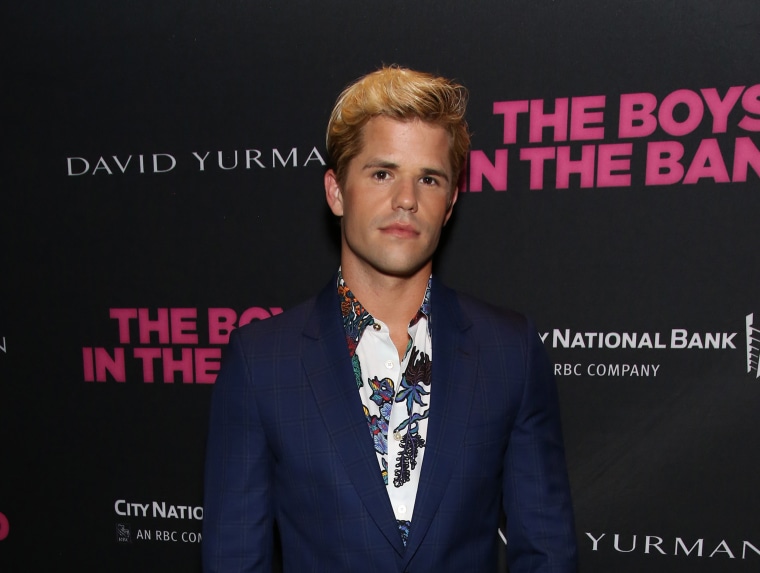There are antiquated notions in the entertainment industry about masculinity and what will sell, but it's an image that Hollywood itself has cultivated and reproduced about what it means to be an ingenue or a young leading man. I think that it stems from a false belief that a middle American audience somehow won't tolerate something that verges away from that very narrow range of masculinity that's been traditionally available in media representations.
It comes from the top down, and it has to do with what networks think will get good ratings or what an audience might want or tolerate. But as that messaging filters down through the representation system and to actors, the conversations become a warning: Don't try to change the dynamics of power in this business and don't stand out in a way that could jeopardize your career.
For instance, I remember being told by some of my earlier representatives that, while being at an entertainment event, my response to a question or sort of facial tic (or whatever it was) was somehow effeminate and it would need to be coached out of me. I was even sent to a vocal coach to "butch up" my voice.
There's a lot of hypocrisy in the industry, especially when you use straight actors to tell LGBT stories but think LGBT actors can't be taken seriously in straight roles. I thank goodness that more LGBT stories are being told in general, but you then find that, when straight actors take on gay roles, they are applauded for their audacity. It's an actor's job is to really get the heart of the human condition and tell a human story, so it shouldn't be so surprising that straight actors can play LGBT roles any more than it's surprising that Matt Bomer and Zach Quinto can successfully play straight leading men. They're first and foremost fine actors. it is important (and it needs to be seen more often) that gay men or gay women can also jump into any role and use their empathy and their hearts and their imaginations to stand into somebody else's shoes.
I had a lot of friends in the business who weren't out, and somehow we all knew or heard that that wasn't really okay to be or else we wouldn't get those kinds of roles. But I knew that, if I stayed in the industry, that I would want to get to a place where I felt like I could come out publicly, rather than only living that truth privately.
I remember very early on during shooting "Desperate Housewives," for instance, talking to Felicity Huffman about this conundrum, and telling her, "Look, this is who I am and I've figured a lot of this out, but I'm figuring out more and more. I feel this atmosphere of threat and that, in this business, it's somehow not okay to be out. What do you think?" She was such a a wonderful sounding board for me to kind of revisit the topic again and again when I wasn't ready to be more public about my private life, but I knew even at that point that, if I were able to continue working, I would come out. And, in 2016, I did.
I'm lucky — well, "lucky" is not the right word, but I'm privileged as a white, cis, mostly-passing guy, that I didn't have larger issues with which to contend. But there are many other people trying to live out their dreams to act and be storytellers and work in the business, and for them, this system of beliefs from 50 years ago (as opposed to where we are today) can mean that, on a fundamental level, there will be no room for them at the table. Femmephobia, both within the LGBTQI community and without, really does teach young men that there's a narrow range of acceptable masculinity and that you have to perform a certain kind or fit into this very narrow definition of it to succeed.
So it's also interesting to now be in "The Boys in the Band," one of a few pre-Stonewall plays that we have that gives us an idea what it was like to be gay in America in the early 20th century. From the vantage of 2018, it's as much a play about the gay experience then as it is about the definition of masculinity. So much of the struggle between these men is about how they feel comfortable as men and how other people's gender expression makes them feel threatened or uncomfortable.
But I would say to young LGBT people that, really, it does get better. As soon as you start to live in your truth, you really feel a sense of power about who you are and what you want, and then there's rooms to have more joy and to let life surprise you. The world is changing. Representation is changing. We need you, and more than anything, there will always be a community there for you, that will love and support you just as you are.
As told to THINK editor Megan Carpentier, edited and condense for clarity.
Charlie Carver is an actor currently appearing in "The Boys in the Band" on Broadway.
